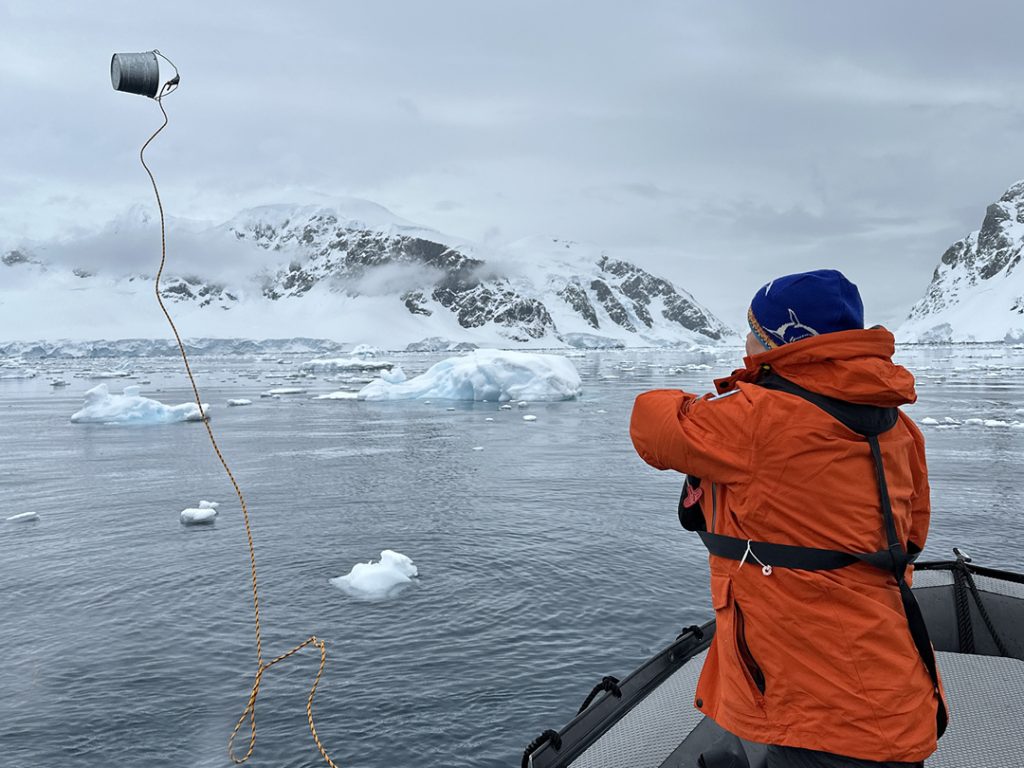- This event has passed.
Virtual Talk: CSI for the Ocean
February 11, 2025 @ 5:30 pm – 7:00 pm

Uncovering Microfiber and Microplastic Pollution in the Arctic and Antarctic
By now, most people have heard about plastic islands or ocean garbage patches. These formations consist of debris of all sizes, from large fishing nets to tiny microplastics less than five millimeters in size, trapped together by ocean currents. The most well-known and largest of these plastic islands is the Great Pacific Garbage Patch, which covers an estimated surface area of over 617,000 square miles—an area twice the size of Texas. However, marine debris isn’t confined to these massive plastic islands; it has permeated all of Earth’s oceans, even reaching remote regions with minimal human development, such as the polar areas.
Join VINS for a talk with Brooke Winslow, a Field Researcher with the Rozalia Project for a Clean Ocean. Brooke will share her work alongside National Geographic Explorer Rachael Zoe Miller, using forensic techniques to investigate microplastic and microfiber pollution in the Arctic and Antarctic. By documenting the locations of microplastic pollution and identifying its sources, researchers with the Rozalia Project are developing actionable solutions that we can all support.
Speaker Bio:
Brooke Winslow has been a dedicated member of the Rozalia Project team for over a decade. She began as an intern, progressed to First Mate of American Promise, co-invented the Cora Ball, and now serves as a field researcher and data analyst for the CSI for the Ocean mapping and monitoring program. Brooke holds a Bachelor’s degree in Environmental Science from Seattle University. A lifelong sailor who grew up navigating the waters of the Pacific Northwest, she now resides in Bethel, Vermont, with her Newfoundland, Popcorn.
*A $10 donation is suggested.
